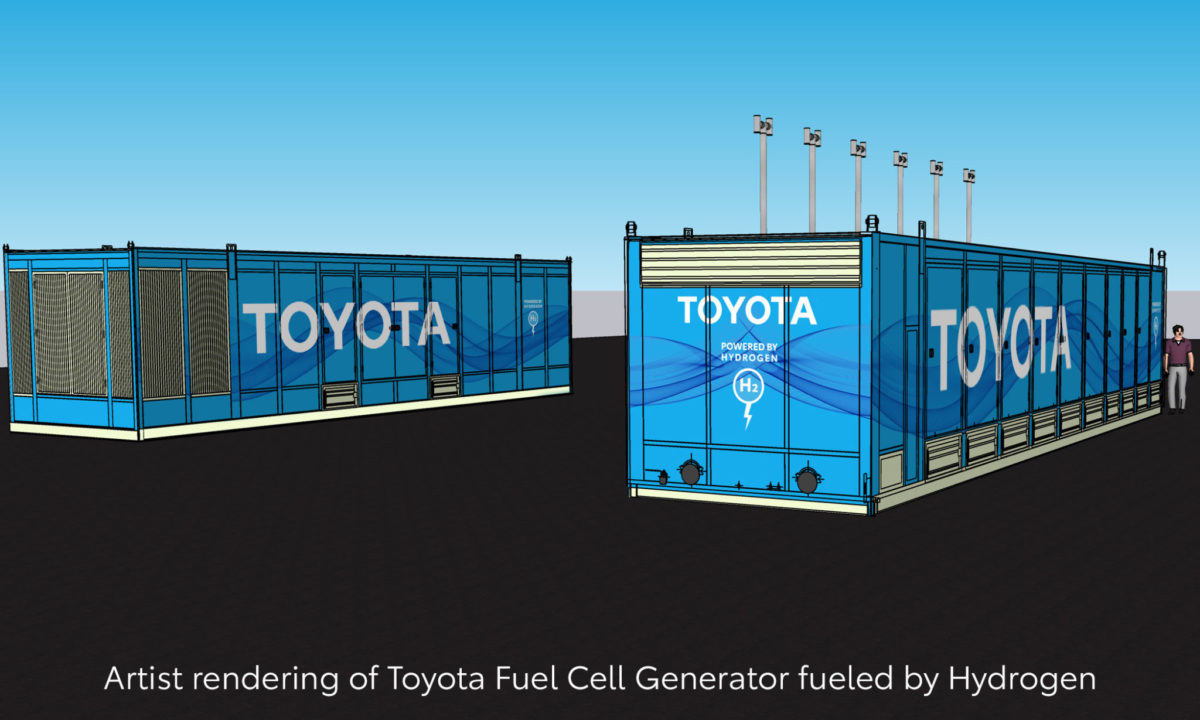From pv magazine USA
Toyota Motor North America announced it is partnering with the National Renewable Energy Laboratory (NREL) to construct, install, and test a 1 MW proton exchange membrane fuel cell power generation system at the NREL Flatirons campus in Arvada, Colorado.
The program is a 3-year, US$6.5 million (AU$9.3m) project funded by the Unite States Department of Energy’s (DOE) Hydrogen and Fuel Cell Technologies Office, part of DOE’s Office of Energy Efficiency and Renewable Energy.
The 1 MW system integrates multiple Toyota fuel cell modules to create a dispatchable stationary power system. In a previous partnership between the two, NREL demonstrated the use of an automotive fuel cell system to provide carbon-free power for a data centre. This new test system is about 15 times the size of the previous test and is capable of both direct current and alternating current power output.
Toyota has been developing fuel cell technologies for over 25 years, largely in the light duty electric vehicle space. Toyota will provide the fuel cell modules and is partnering with systems integrator Telios for the design, balance-of-plant, and build of the system for delivery to NREL. Toyota developed a control system to manage operation of the modules and maximise efficiency and system life. Toyota said the system’s simplified design makes it a suitable candidate to be a drop-in replacement for conventional generators.
“Achieving carbon neutrality requires all of us to explore new applications of zero-emission technology, including how that technology will integrate with other systems, which the project with NREL will identify,” said Christopher Yang, group vice president, business development, fuel cell solutions, Toyota. “The application of our modules in deployments of this magnitude shows the scalability of Toyota’s fuel cell technology, whether it is a single fuel cell module for one passenger vehicle or multiple systems combined to power heavy-duty equipment.”
NREL will stress-test and push the operational boundaries of the system to identify performance limitations and degradation. The research project will also include an assessment of system performance when integrated with energy storage and renewable energy generation systems like solar and wind.
“We will study the scaling of PEM fuel cell systems for stationary power generation to understand what the performance, durability and system integration challenges are,” said Daniel Leighton, an NREL research engineer and principal investigator on the project. “This fuel cell generator system also creates a new megawatt-scale fuel cell research capability at NREL.”
The fuel cell generator is part of NREL’s Advanced Research on Integrated Energy Systems (ARIES) at the Flatirons Campus. The system includes a 1.25 MW PEM electrolyser, 600-kg hydrogen storage system and 1 MW fuel cell generator. The fuel cell generator system will be installed this summer, and the full system will be commissioned later in 2022, said Toyota.
This content is protected by copyright and may not be reused. If you want to cooperate with us and would like to reuse some of our content, please contact: editors@pv-magazine.com.









1 comment
By submitting this form you agree to pv magazine using your data for the purposes of publishing your comment.
Your personal data will only be disclosed or otherwise transmitted to third parties for the purposes of spam filtering or if this is necessary for technical maintenance of the website. Any other transfer to third parties will not take place unless this is justified on the basis of applicable data protection regulations or if pv magazine is legally obliged to do so.
You may revoke this consent at any time with effect for the future, in which case your personal data will be deleted immediately. Otherwise, your data will be deleted if pv magazine has processed your request or the purpose of data storage is fulfilled.
Further information on data privacy can be found in our Data Protection Policy.